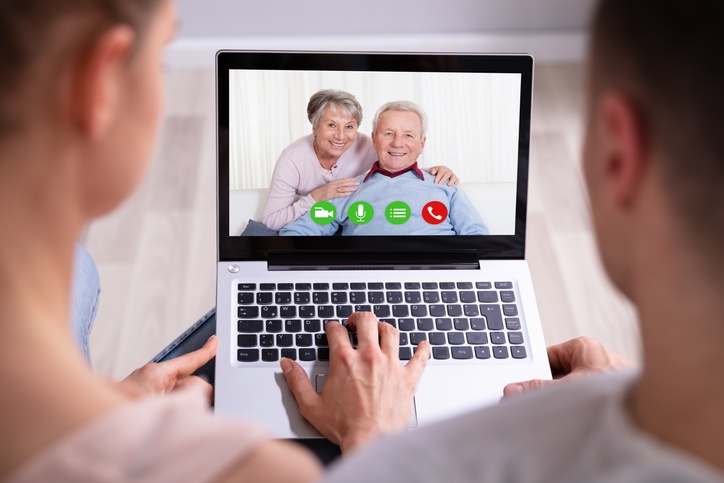Have you or someone you know been separated from an elderly loved one during the pandemic?
Maybe your situation is as simple as not being able to visit a parent or grandparent because of their age or risk factors, or because you live in a hot spot and can’t risk traveling to them. Perhaps an international assignment has left you stranded abroad.
Residents of care facilities and their families have the added burden of being isolated. In an effort to stop virus transmission, visitors have not been allowed in-person contact in many places.
Finally, you may actually be responsible for an elder’s care, which can be complicated by concerns over personal visits, resorting to remote communication with the loved one and medical personnel, and the general angst and separation brought on by service shut-downs.
Here are some ways to address these:
Navigating a virtual world
Workers aren’t the only ones who have quickly adopted new technologies. Senior citizens of all skill levels have embraced Skype, Zoom, Facetime, and other apps and platforms that let them see and talk to family. In some cases, it’s brought far-flung family members together more often than was possible when everyone’s schedules were so full with conflicting commitments.
Due to increased screen time and Internet shopping, make sure your senior has all the latest security protections against malware and viruses. Encourage them to be cautious with any communication or offers coming from unfamiliar sources, and vigilant about sharing personal information.
Increased reliance on Internet shopping has led many people to expand their web presence. Be sure your senior uses strong passwords when setting up new accounts for online deliveries.
Staying on top of managed care
Families with loved ones in assisted care facilities may have been refused visits in the past few months. Tablets, smart phones, and laptops have become lifelines of connection and a good way to lay eyes on the elder person to gauge their health and well-being. Health care staff have ramped up these alternative methods of communications, often providing a device to residents for these virtual visits.
In some areas, outdoor, socially-distanced visits are now possible. Facilities that make these visits available typically require face masks and a distance of six feet maintained between people.
Medications, doctors’ visits, and therapies can be monitored from the outside via phone calls and emails between the family and staff. You might also tap into the routine professional meetings that may now take place remotely between care team members. Regularly calling in or participating on Zoom can keep the family up to date with changes in health and to help plan for future needs.
Planning for what’s next
Though things are opening up in many places, older people will likely be the last group to experience a return to pre-pandemic freedoms. While restrictions are still in place, it is a good time to ensure that things are in order. If estate planning is non-existent or documents outdated, now is a good time to address that. Discuss with your loved one what their wishes are for the next stages of care, and beyond.
No one knows how long it may take for our elderly population to be medically safe from viruses like COVID-19. But family members can be creative, flexible, and persistent in making sure elders are cared for and connected to those who love them.
Written by Ellen Harris, GMS, Product Manager, Content Group


